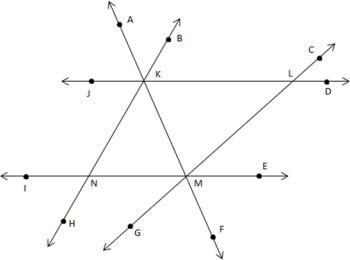
Mathematics, 28.08.2020 23:01 Hi1234t6
Suppose that on each play of a game, a gambler either wins 1 with probability p or loses 1 with probability 1–p (or q). The gambler keeps betting until she or he is either up a total of n or down a total of m. What is the probability the gambler will quit an overall winner? You must consider both cases when p = 0.5 and when p ≠ 0.5

Answers: 3


Another question on Mathematics

Mathematics, 21.06.2019 12:30
Select all the correct locations on the image. select all the expressions that result in a product that is a rational number. mulitiple choice4/3 x 12/3 32/4 x 15/4[tex]\sqrt{\frac{3}{2} }[/tex] x 22/7[tex]\sqrt{11}[/tex] x 2/3
Answers: 1

Mathematics, 21.06.2019 13:00
225/100 of last years cost. write each fraction as a decimal and as a percent
Answers: 1


Mathematics, 21.06.2019 21:00
Circle a has a diameter of 7 inches, a circumference of 21.98 inches, and an area of 38.465 square inches. the diameter of circle b is 6 inches, the circumference is 18.84 inches, and the area is 28.26 square inches. part a: using the formula for circumference, solve for the value of pi for each circle. (4 points) part b: use the formula for area and solve for the value of pi for each circle. (4 points)
Answers: 2
You know the right answer?
Suppose that on each play of a game, a gambler either wins 1 with probability p or loses 1 with prob...
Questions



Health, 13.01.2020 22:31

Mathematics, 13.01.2020 22:31




Social Studies, 13.01.2020 22:31


Mathematics, 13.01.2020 22:31

Mathematics, 13.01.2020 22:31



History, 13.01.2020 22:31

Mathematics, 13.01.2020 22:31




Chemistry, 13.01.2020 23:31

Mathematics, 13.01.2020 23:31


 is p ≠ 0.5 and k/N =
is p ≠ 0.5 and k/N =  is P = 0.5
is P = 0.5


